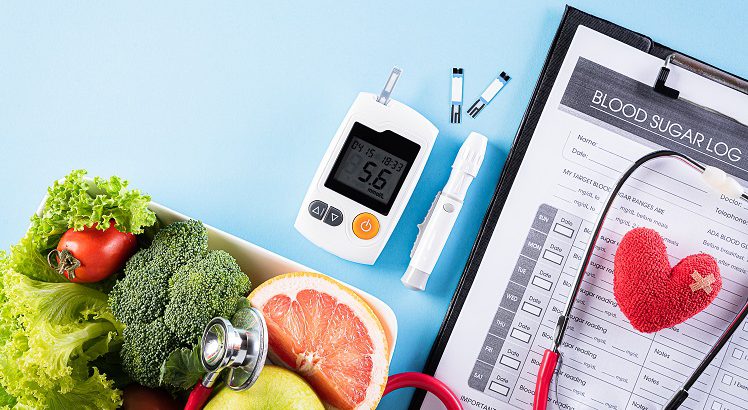Type 2 diabetes affects about 10% of the U.S. population, but if it’s you or a family member, you know that each diagnosis comes with a world of questions and concerns.
The foundation of good diabetes control involves the basics of good health, and that starts with great nutrition. People with diabetes are encouraged to lose 5 to 10% of their body weight—that’s 10 to 20 pounds for a 200-pound person. A registered dietitian can help you identify foods that may be adding extra calories and help you adjust habits to get the recommended five servings of fruits and vegetables a day. Eating enough fruits and vegetables is key to preventing heart disease, the number one complication of diabetes.
Weight loss is recommended for people with diabetes because we know that even a small amount of loss helps your body use insulin better.
Exercise is an essential tool as well. People with diabetes are encouraged to get moderate activity, like “purposeful” walking, for 150 minutes a week. This activity helps your cells respond better to insulin for about 48 hours after you do it. Strength training is recommended two times each week. That can mean anything from a weight-lifting class or basic calisthenics like we did in grade school. Maintaining muscle mass helps increase our metabolism and helps us pull more glucose out of our blood.
A host of other self-care habits go along with good diabetes care. It’s important to keep up with doctor appointments. You will learn about the importance of good blood pressure and blood fats. You will likely be asked to check your glucose at home and your provider will look at a glycosylated hemoglobin or HbA1c. That result measures how your glucose has been running for that last three months. You will be asked to check your feet for injury and keep up with the eye doctor and the dentist.
A diabetes diagnosis can seem overwhelming, especially if it is causing you to feel tired and weak. It’s important to know your targets and get help reaching them.
Pamela Xenakis, R.D., L.D., C.D.C.E.S., is the diabetes education coordinator at Carroll Hospital. Call 410-871-7000 for more information or email [email protected].
Additional Resources:
Learn more about the Diabetes Program at Carroll Hospital
The Partnership for a Healthier Carroll County shares the Carroll County Healthy Eating and Diabetes Resource booklet on its website
